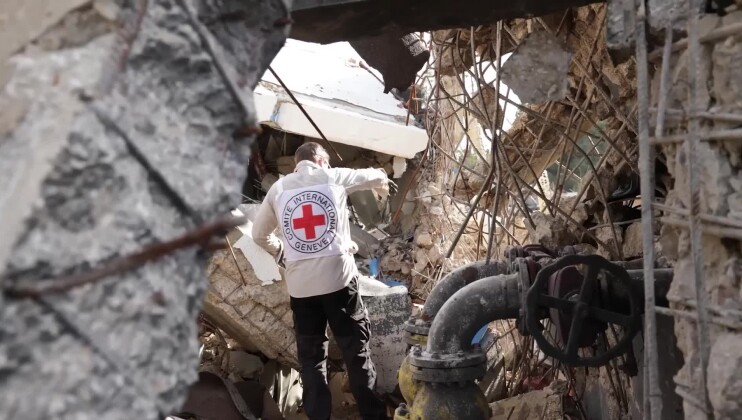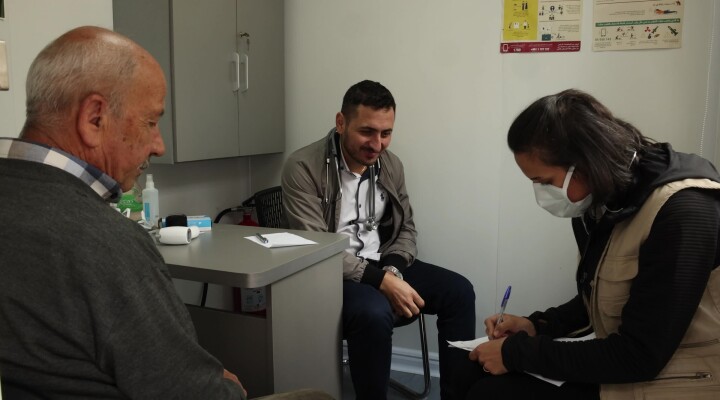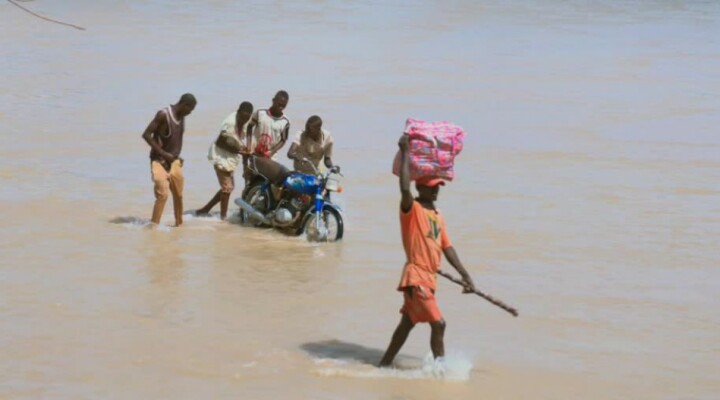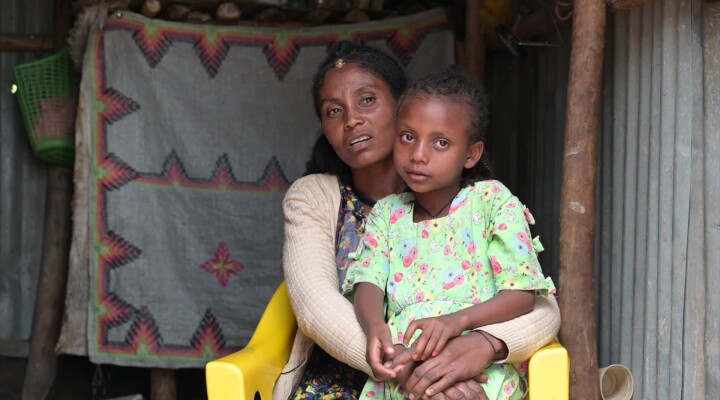First Humanitarian Impact Bond successfully brings physical rehabilitation services to conflict-affected communities
Over 3,000 persons with disability have benefited from physical rehabilitation services in the Democratic Republic of Congo (DRC), Mali and Nigeria, thanks to the first humanitarian impact bond (HIB). Initiated by the International Committee of the Red Cross (ICRC) in 2017, this innovative financing mechanism has proven to be an efficient tool to raise project-driven funding at a time of growing global needs.
An estimated 29 million people – about 14 per 100 of the population - live with a disability in Nigeria and physical rehabilitation services are not available for many of them. In the North-East of the country, conflict and violence have left many with no access to essential health care services, forcing people to travel 600 miles to reach a facility with adequate care.
“Before ICRC started this center, service users used to go to Kano, which is 600 miles away from Maiduguri to seek services at the PRC (Physical Rehabilitation Centre) there,” said Daniel Odhiambo, ICRC team leader for the physical rehabilitation center in Maiduguri. “The service users in Borno state now feel that they can reach the service at any time”
The three centers in Nigeria, the DRC and Mali, were funded through a unique financing mechanism called the Humanitarian Impact Bond (HIB). The initial funding was provided by social investors, such as Bank Lombard Odier and New Re, and ultimately reimbursed through a payment-by-result agreements by outcome funders, including the governments of Switzerland, Belgium, Italy, the United Kingdom and “La Caixa” Foundation.
The center has already had an immense impact for patients like Bintu Umar who was amputated in 2009 after an attack on her village. “When I didn’t have the prosthetic leg, some activities were challenging for me. But thanks to the leg, I can assist my parents. I also do household chores now.”
For more information, please contact:
Florian Seriex, ICRC Geneva, tel: +41 79 574 06 36, fseriex@icrc.org
Chris Hanger, ICRC Geneva, tel: +41 77 260 26 79, changer@icrc.org
LOGLIST
Title: ICRC Humanitarian Impact Bond
ICRC Ref: 20220722-ICRC-HIB
Date: 28.07.22
Location: Maiduguri, Nigeria
Camera: Adewale Fatai
Producer: Florian Seriex and Mark Kamau
Duration: 5:16
Format: HD H264
Copyright: ICRC access all
00:00 -->00:17
Various shots of Hussein walking with a newly fitted prosthetic in hospital.
00:17 -->00:24
Follow shot of Hussein walking in a street.
00:24,000 -->00:54
INTERVIEW : Fatima Abatcha
He did not look both ways when crossing the road and was hit by a truck that crushed his leg. That's why he is like this now.
00:54 --> 01:09
After the amputation, he was given a walking stick to help him walk.
01:09--> 01:13
After a while, the stick broke and it is very expensive. It cost almost 8,000 naira (about USD20)
01:13--> 01:22
Since we couldn’t afford a new walking stick, we made him one out of wood. He used this until we got support.
01:22 --> 01:35
Various shots of Hussein mother seated outside their home, plays with a child.
01:35--> 01:44
Hussein exits home on his way to school.
01:44 --> 01:55
Someone who works at the organization explained how to get a prosthetic leg.
01:55 --> 02:05
Now, everyone is happy. Some are even crying of joy. We are all grateful.
02:05 --> 02:11
Hussein exits on his way to school.
02:11 --> 02:15
Long shot of Daniel talking with a colleague in a workshop in Maiduguri.
02:15 --> 02:31
Interview: Interview Daniel Odhiambo
Before ICRC started this center, service users used to go to Kano, which is 600 kilometers away from Maiduguri to seek services at the PRC (Physical Rehabilitation Centre) there.
02:31 -->02:55
The service users in Borno state now feel that they can reach the service at any time that they wish without far much involvement financial payment for transportation which is now reduced or not there completely. This is the positive impact of this project here.
02:55--> 03:18
Various shots of a patient being attended at an orthopedic centre in Maiduguri
03:18--> 03:53
What we did from the beginning was to involve services users who can afford to pay for services but those who are taken care of by ICRC due to conflict faced in this area, the ICRC pays for their services, that is devices, food, transportation and accommodation. So this has had a positive impact in the numbers that are coming for services here.
03:53 --> 04:12
Various shots of Bintu Omar in her shop on a rainy evening.
04:12 --> 04:18
INTERVIEW:Bintu Umar
When my leg was amputated, I couldn’t even walk to Custom camp with a walking stick (2km away). I had to pay for transport.
04:18 --> 04:28
Now that I have the prosthetic leg, I can walk from here to Custom slowly without stress. I can even fetch water.
04:28 --> 04:41
In the past, when I didn’t have the prosthetic leg, some activities were really difficult. . But thanks to the leg, I can help my parents. I can also do household chores..
04:41 --> 05:06
It has had an impact on peoples’ lives because service users can walk in directly when they have a problem…. Also for minor services, we are able to undertake it here so it has given a positive impact and eased the service of traveling out of Maiduguri.
05:06 --> 05:16
Various shot of Bintu Omar in her shop.



